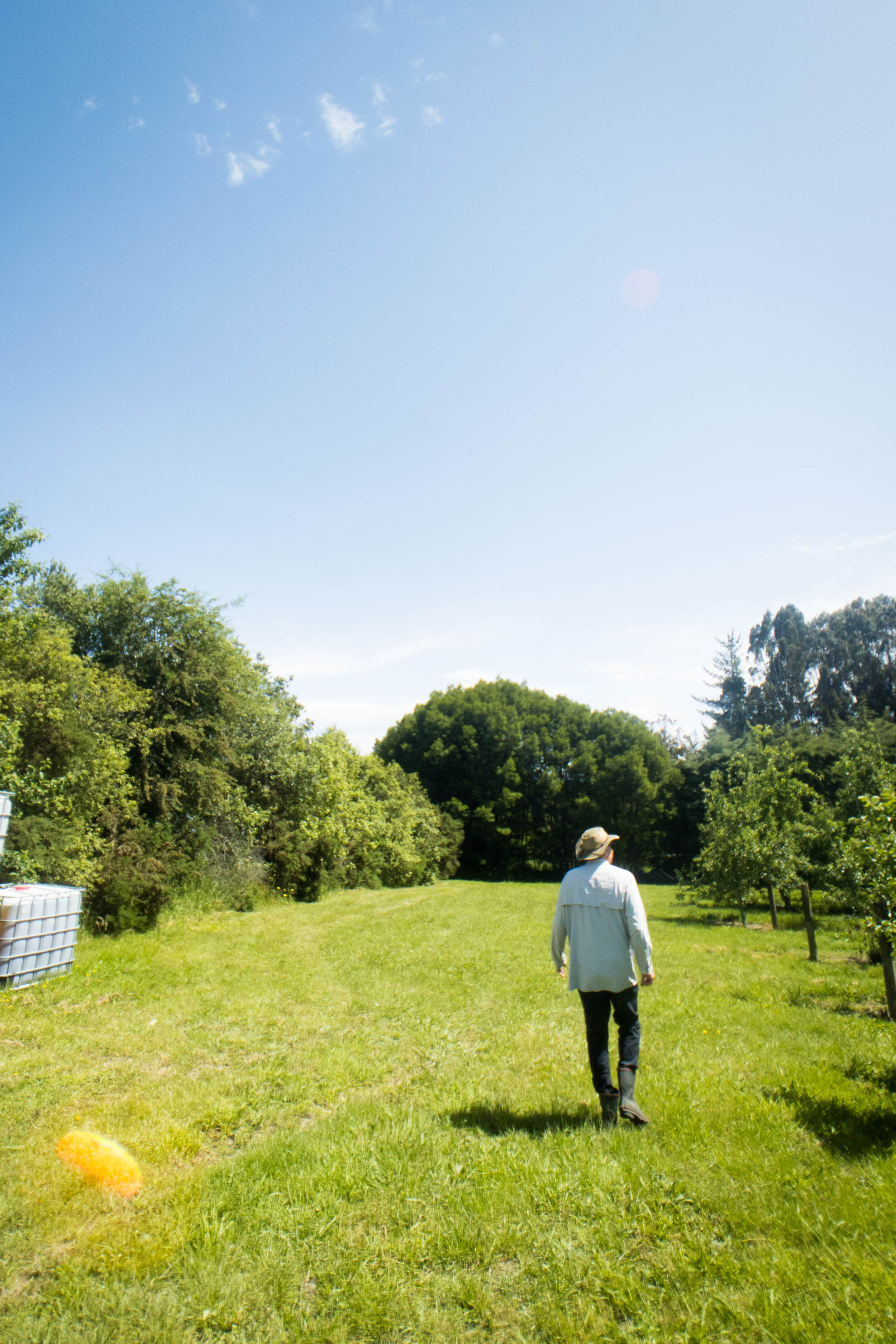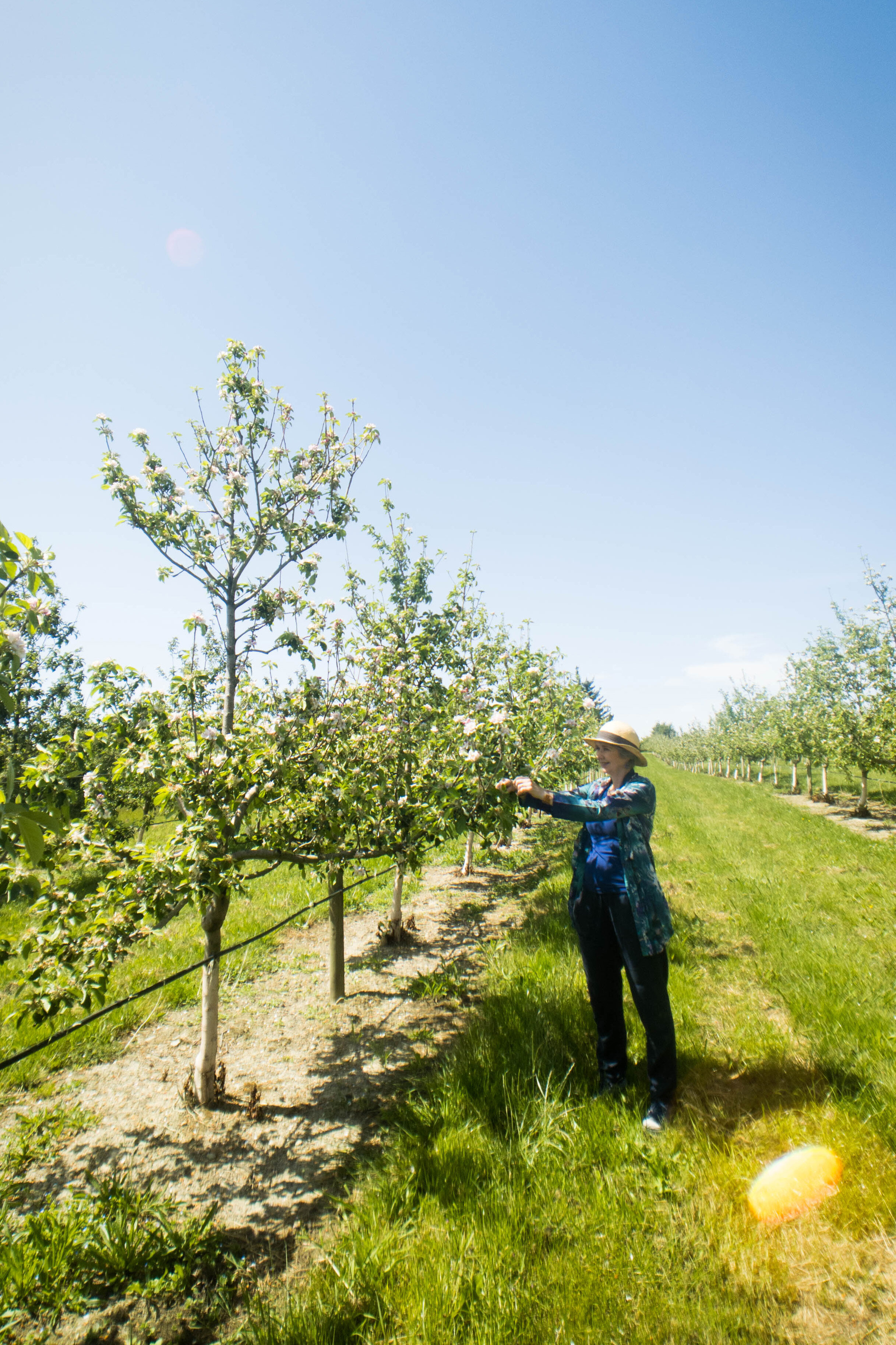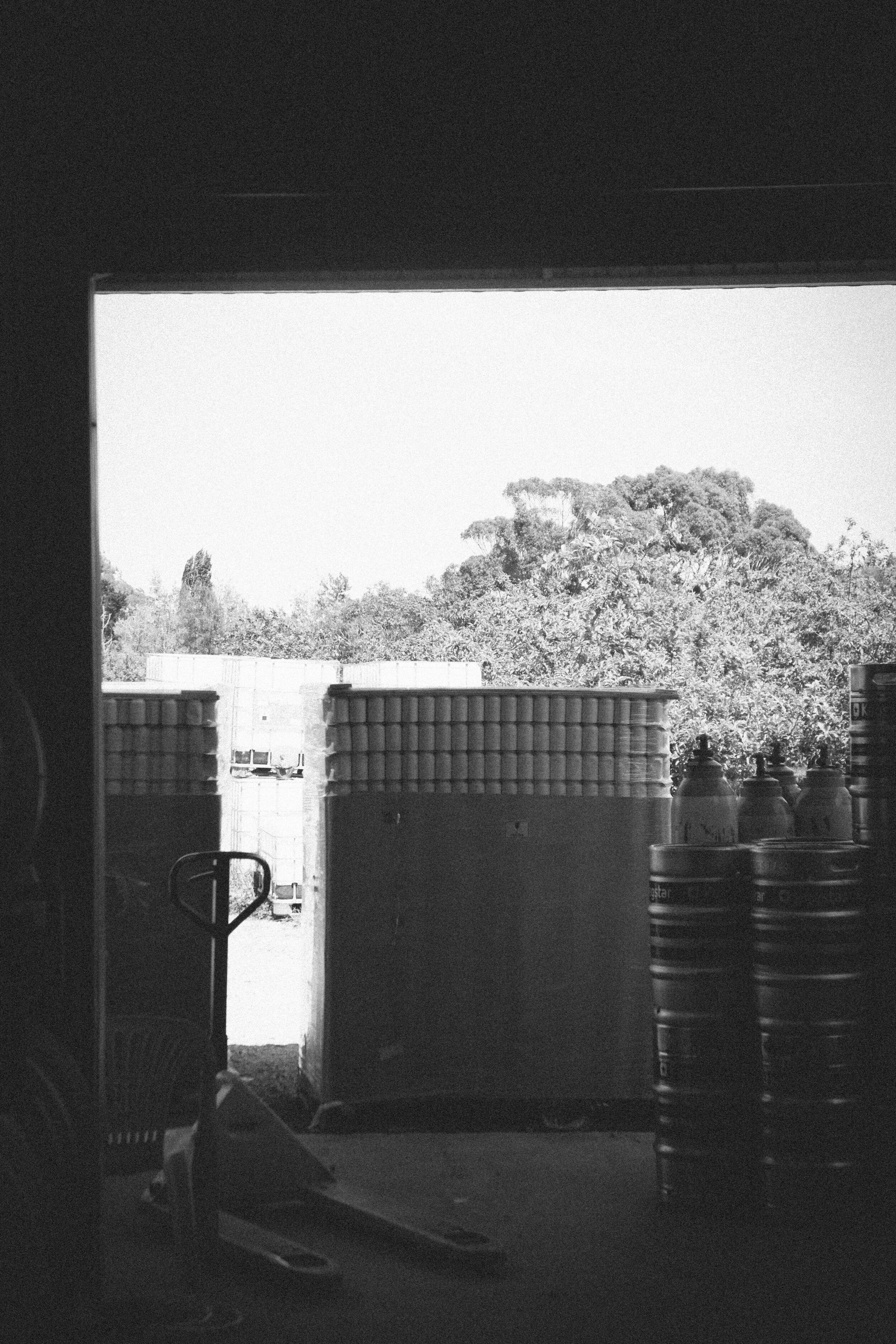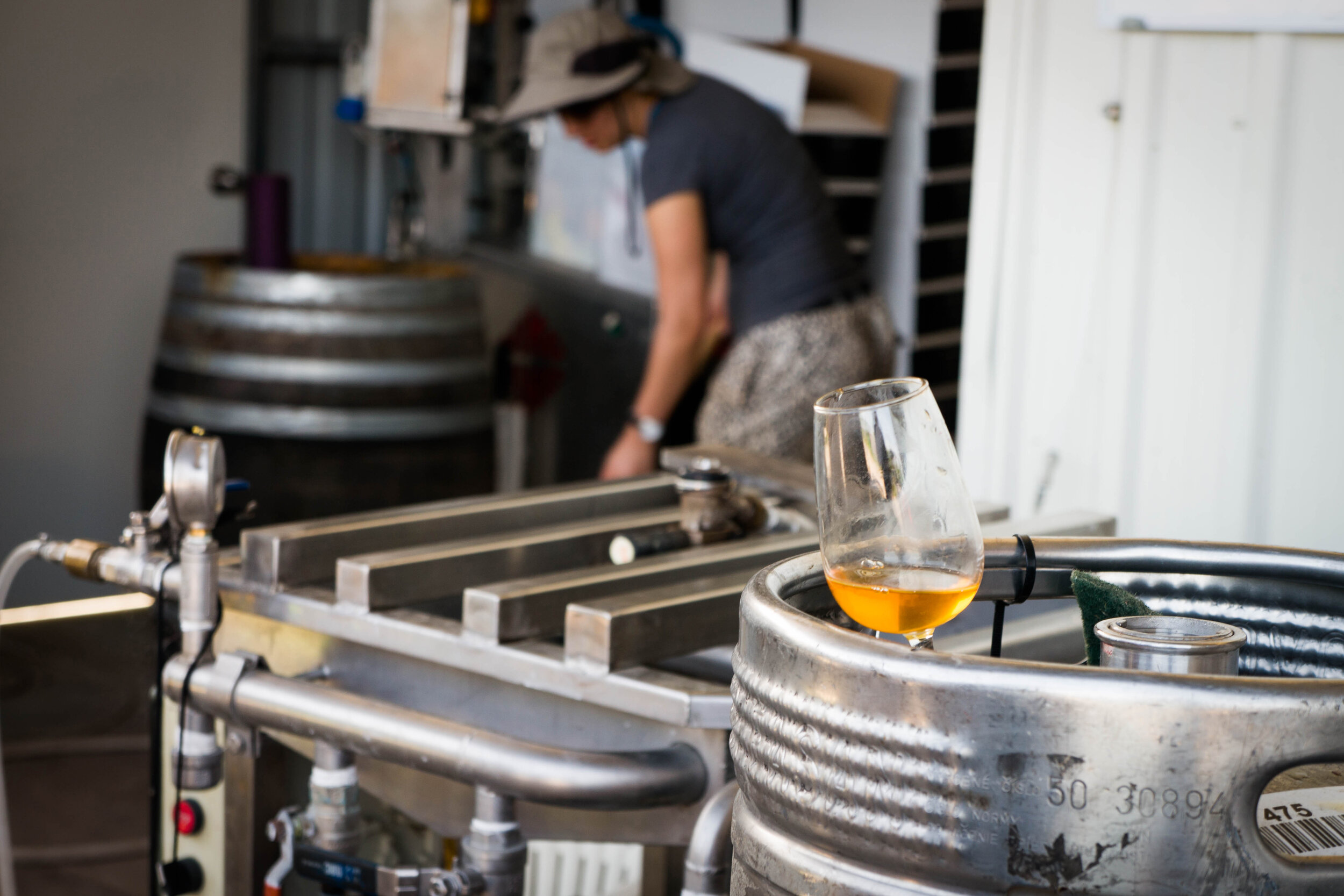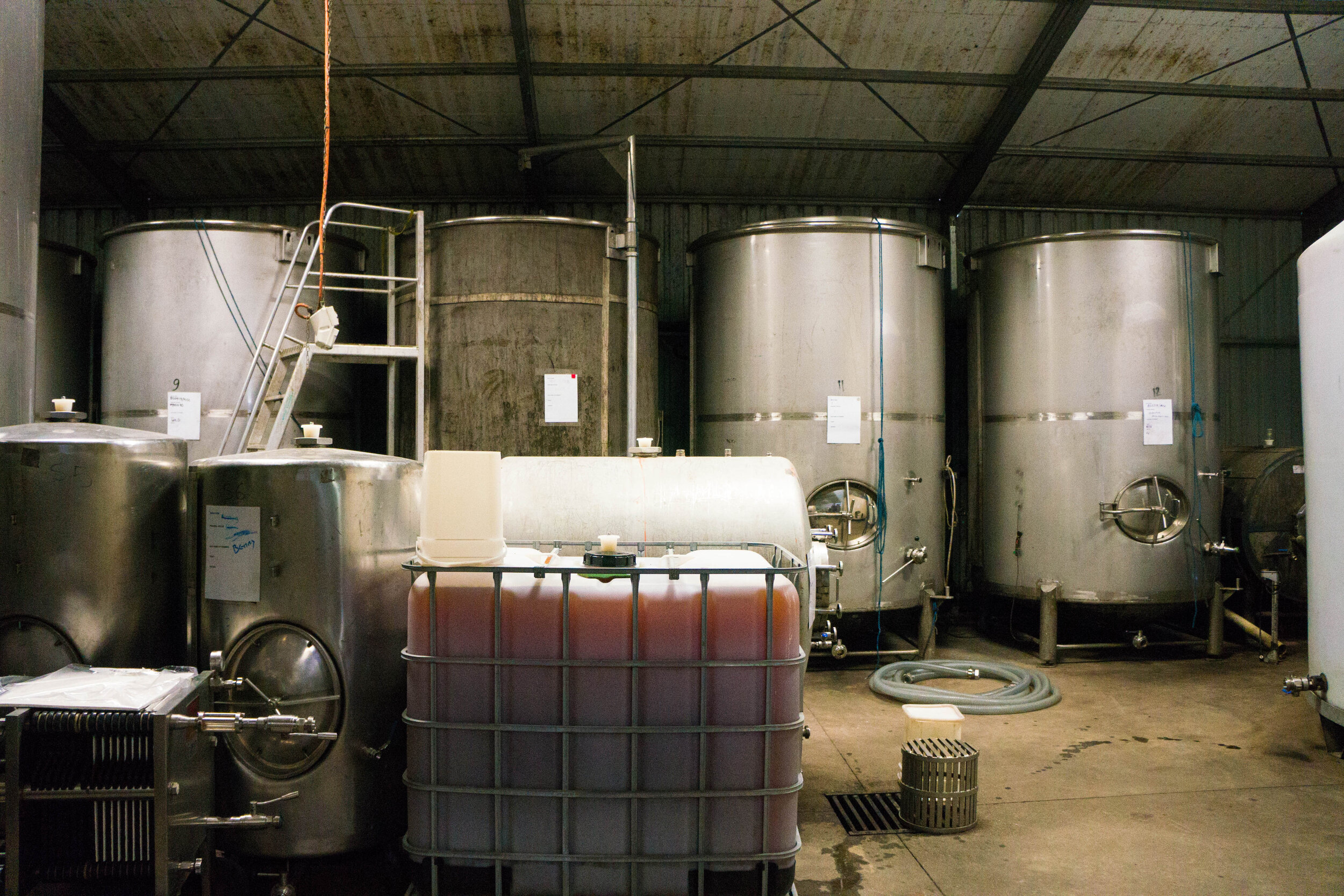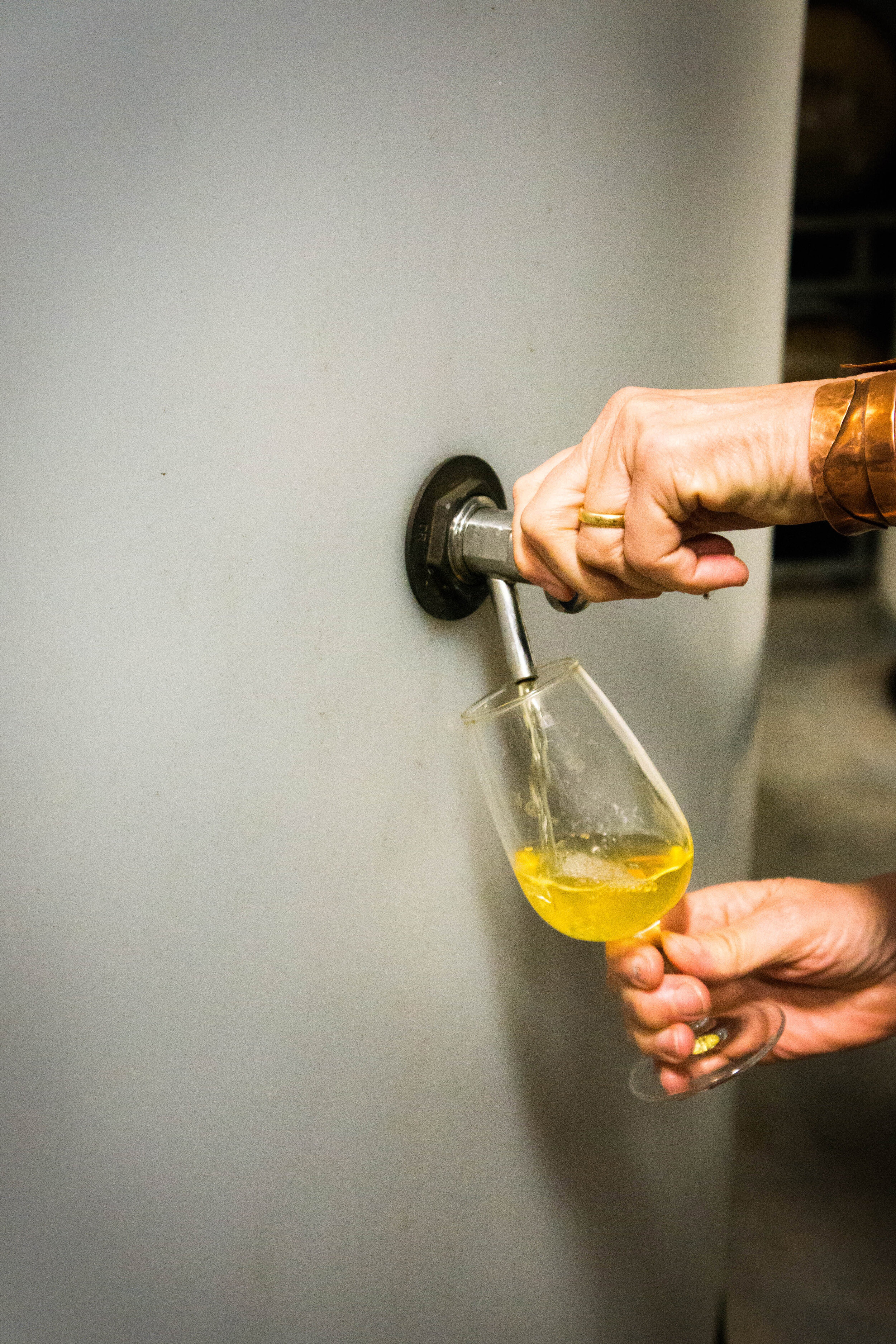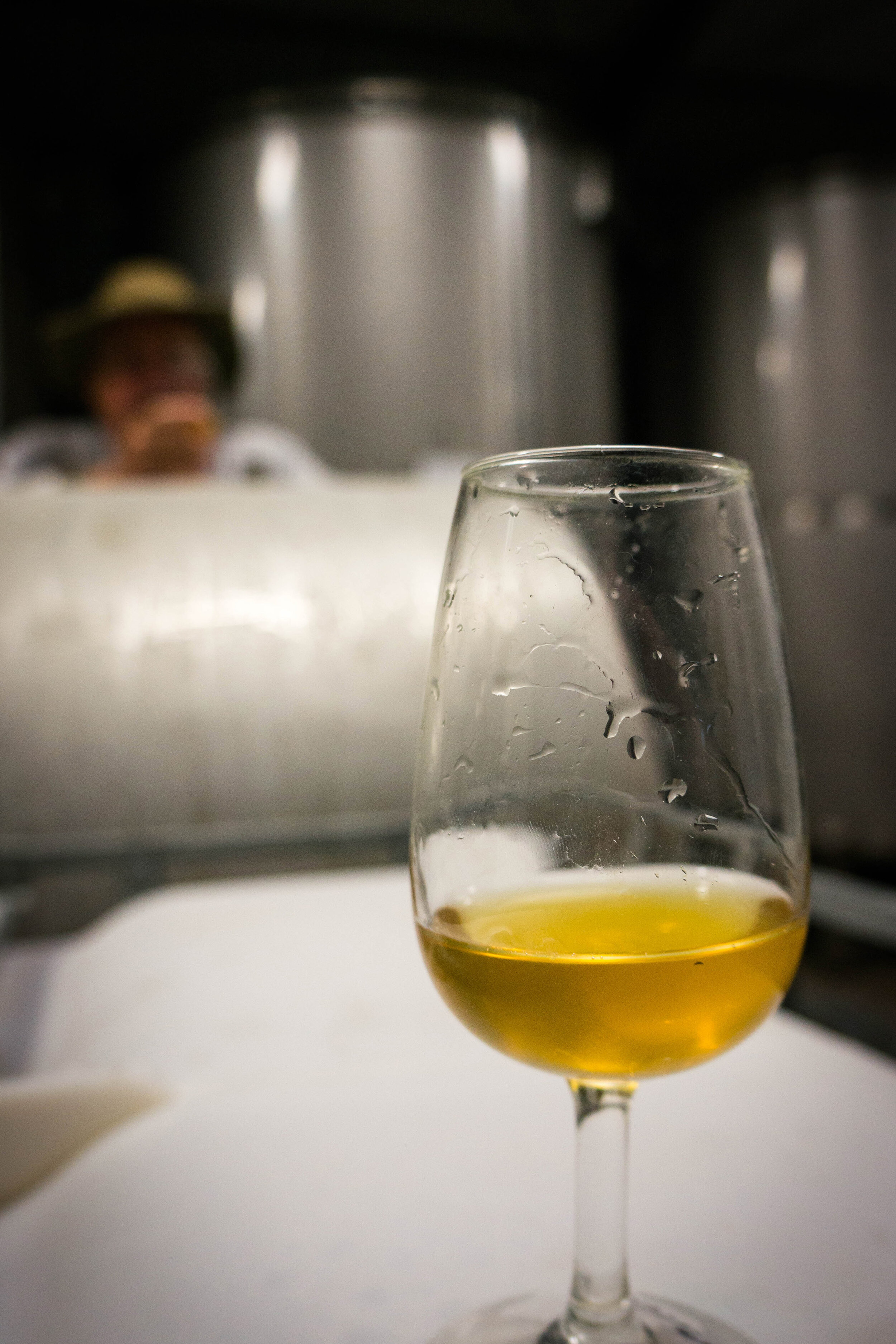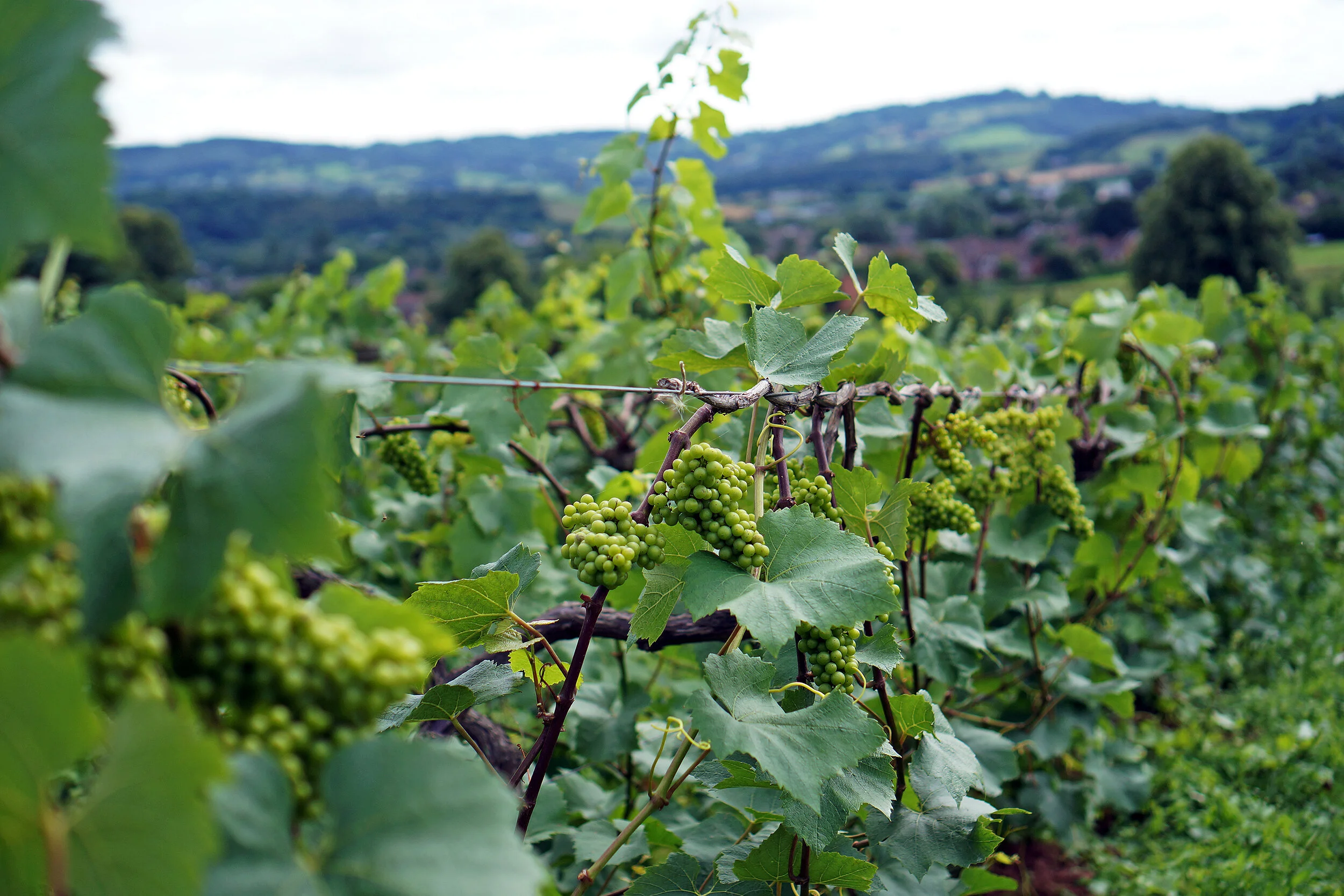Peckham's Cidery and Orchard — A Taste of Somerset in the Land of the Long White Cloud
We would like to wish our condolences to the family of Alex Peckham, who sadly passed away on April 12th 2022. The Peckham’s continue to make cider, and we are happy to his legacy being carried on, as we’re certain he would be.
***
“Nobody in New Zealand drinks cider,” says Alex Peckham, sitting alongside his wife Caroline on their farmhouse’s veranda, his face turned towards the distant snow-freckled mountains of Kahurangi National Park. “And we’d like it to stay that way.”
Photography by Eoghan Walsh
It’s not the proselytising mission statement you’d expect from the co-founder of one of New Zealand’s most renowned cideries. Alex and Caroline didn’t emigrate from the UK to the South Island to preach the Good Word of traditional cider. And, Alex is being self-deprecatingly disingenuous. But after a decade in business Peckham’s Cidery and Orchard’s commitment to tradition and its confidence to subvert convention has introduced Kiwi drinkers to the world of well-made cider, re-imagining the possibilities for New Zealand cider.
And all because they just wanted a good pint of cider that tasted of home.
***
It’s an early Friday morning in November in the lull between springtime harvest seasons. Caroline is chatting about their arrival in New Zealand, battling to be heard above a fierce wind whipping across the veranda that’s playing havoc with Alex’s hearing aid. The pair moved from Scotland to Canterbury on the South Island in 2003, leaving behind a successful environment management company and taking with them their three young children. Having bonded over murky pints of cider in dingy Edinburgh student pubs, they ventured to a local hostelry to see what New Zealand cider was like.
“The only cider they had was in a little clear bottle, and the cider was about as clear as the bottle was!” Caroline laughs, a slight antipodean twang now affixed to her northern hemisphere vowels. “We literally just did not recognise it as a cider.”
In 2006 the Peckham’s moved to Upper Moutere and to the farmhouse outside of which we’re now sitting. Inland from the Tasman Bay at the top of the South Island, Moutere is a 30km drive from New Zealand’s hop-growing capital Nelson, the coast road skirting fields of kiwi fruit, vineyards, blackberry bushes, feijoa trees, and hop bines.
Between their first New Zealand cider experience and moving to Moutere, Alex and Caroline started making their own cider. “Some of it went in the bucket, most of it went on the floor. Some of it on the ceiling,” says Alex of those early fumblings. Though the farm was planted with boysenberries (“Like a big fat raspberry,” Alex says), it wasn’t long before they considered uprooting these bushes, complementing the few dessert apple trees scattered around the farm with more apples, and turning their “professional hobby” into a proper cider-making business—smack in the middle of wine country.
“Everybody said we were crazy doing this,” Caroline says. “And this piece of land in particular is facing the sun, has a gentle slope, and it’s got water. They told us: ‘You should be putting grapes in here, what’s all this cider nonsense?!’”
And cider didn’t exactly have the best reputation in New Zealand; certainly not on a par with the chic wineries next door. In fact, most New Zealanders knew cider as a low-quality drink suitable only for the college drinking game ‘Scrumpy Hands’, which according to journalist Jono Galuszka, “involves securing a bottle of Scrumpy [8.2% cider sold in one and a quarter-litre bottles] to each hand with duct tape. You cannot use your hand until you finish the bottle of Scrumpy in it…”
“I'm not sure if [it] says more about our cider scene or our drinking culture,” he adds.
***
When the Peckham’s arrived in New Zealand and started their cidermaking experiments in the 2000s, the country’s cider industry was (and to an extent, remains) dominated by large breweries and cideries. These producers use unripe and reject fruit, taking advantage of lax government regulations allowing producers to use “homeopathic” (Alex’s words) amounts of actual apple juice. “So of course the results are not going to stand up to traditional cider,” Caroline says. “Like, would you expect to make a really good wine from reject table grapes?”
“I always liken cider, at least in this country, to cheese,” Caroline says. “You’ve got on one end of the spectrum processed individually wrapped slices in plastic, then everything in between until you hit full-wheel, mature farmhouse cheddar...And we’re up at that end.”
It was traditional cider Alex and Caroline were interested in. And. after securing land for an orchard, the Peckham’s next hurdle was getting hold of the “right” kind of apples.
““It’s taken all this time for us to start to understand how the different varieties perform, and which perform well in this environment.””
“Basically, you’re stuck with the genetics you’ve got,” Alex says. A stroll down from the veranda reveals neat lines of apple trees sloping away from the farmhouse. Tree trunks are daubed to waist height with whitewash mixed with dried blood up to their branches to keep away inquisitive rabbits and pukekos (a native species of swamphen,) soundtracked by the gentle hum of nearby beehives. New Zealand has strict biosecurity and expensive-to-navigate rules governing what plant material can enter the country. This, coupled with the focus of New Zealand’s apple industry on dessert and export apples, limited the native varieties available to the Peckham’s.
Before these biosecurity rules existed, apple farmers had imported—and subsequently abandoned—cider apple varieties from France, England and Spain. “We scoured the country looking for old abandoned orchards and found these old varieties from old maps somebody’s great grandfather had left,” Caroline says. That’s how Caroline and Alex found themselves more than once driving over frozen mountains, on their way north from a pruning session in Canterbury, apple tree scions piled up in the back of their ute (or truck to us in the northern hemisphere), praying their precious cargo arrived in Upper Moutere unscathed. Once the cuttings arrived, they needed to work out what they had on their hands.
“We did have a bit of confusion at the beginning,” Caroline says. “You find that after three years a tree is producing three different colours of apples of different shapes and sizes.”
Through trial and error, and with the help of pomonas (fruit catalogues), they gradually identified all but a few varieties. In their orchard Alex halts in front of a tree, bending down to inspect some pre-harvest Dabinetts, the apples bruise-purple in the intense pre-noon sun. The orchard that emerged from their efforts is 6,000-strong now, with 30 or so distinct varieties including Kingston Black, Chisel Jersey, Tremlett’s Bitter, and Yarlington Mill. But while the Peckham’s may be growing heritage English cider apples, Upper Moutere is not Somerset.
“The climate here is really different to back in the west of England,” Alex says. “It’s taken all this time for us to start to understand how the different varieties perform, and which perform well in this environment.”
Alex lopes beyond the trees where work-worn farm machinery idles next to a couple of corrugated sheds where well-performing apples become cider. Pallets and stacks of wooden barrels crowd the shed entrance, behind which are more barrels—dates, codes, and names of blends are varieties scrawled in scratchy white chalk—squeezed in next to stainless steel tanks, bottling equipment and an imported Slovenian cider press. It’s off-season and the ciderhouse is quiet, but the sight of all those tanks and wooden barrels rouses something in Alex.
“Because we’re on our own here, we’ve evolved our own ways of doing things,” Alex says, explaining their approach. “We can define what we want to make.”
In the beginning, they called it English cider. But it wasn’t really English cider.
“[People] can taste the clean fruit, the intensity of the sun, the abundance [of the region],” Caroline says. “That’s also why we moved away from calling it English cider. We‘re making traditional cider but we are making it in New Zealand, so it’s not like UK cider. It’s got its own character.”
***
Alex and Caroline wanted to replicate as best they could the “terroir on a national scale” they experienced with New Zealand hops and wine.
“Ripe fruit is key. Selecting the right variety is key,” Alex says. “And then just keeping on inventing, realising it’s not the same thing every day and exploring what the possibilities are.”
Dylan Jauslin, bar manager at Goldings Free Dive in Wellington, has seen up close Alex’s methods and dedication. In late 2019 he spent a week on the farm, sampling dozens of different blends, barrels, and varieties as Alex worked on the next season’s releases.
“Alex is utterly unwilling to compromise on the quality of his cider,” Dylan says. “Alex would pass me samples and say ‘I'm not happy with this, I'm thinking of tipping it out.’ Without fail, when I tasted it, it would be better than probably the majority of other ciders produced in this country.”
““Peckham’s are without a doubt the best cider producers in NZ, and in my humble opinion among the best in the world.””
Peckham’s do produce standard dry or sweet ciders, but the understanding and maturity Alex has gained in a decade working with apples and making cider has led him to more experimental expressions of the flavours produced by their orchard. The ciderhouse’s wine, bourbon, pommeau and brandy barrels of barrels are an obvious example. They’ve released a cyser (mead fermented with apple juice), pommel (apple brandy mixed with apple juice and aged on oak), keeved ciders, fruited ciders, and single variety blends.
Alex has also gravitated towards wild fermented cider in an effort to better showcase his fruit, and because of dissatisfaction with the flavour produced by the conventional Saccharomyces yeast he otherwise uses. This also led to collaborations with Pete Gillespie of Wellington brewery Garage Project.
“Peckham’s are without a doubt the best cider producers in NZ, and in my humble opinion among the best in the world,” Pete tells me. “Alex and Caroline are also the most charming, enthusiastic, generous and, above all, authentic producers I’ve met.”
The Peckham’s have supported Garage Project’s own forays into cidermaking, and Pete has hosted several Peckham barrels in Wellington in order to inoculate Alex’s cider with Garage’s house yeast cultures. “You’ll have to ask Alex if he liked the result, but I thought it was great fun,” says Pete.
***
As he frenetically dips into barrels and pulls out samples of this year’s Kingston Black or that fire cider blend, it’s clear 10 years in Alex is still having fun. The idea for a fire cider came from a chance meeting with an American cidermaker.
“I came across a guy called Rev Nat [West, founder of Reverend Nat’s Hard Cider in Portland, Oregon],” Alex says, standing over a rusted ochre-red flume-and-steel-tray-contraption he has assembled between the ciderhouse and their apple nursery, half-buried in a clump of weeds. “He has a cider made by boiling juice, and I thought it had a really interesting profile.”
Alex had previously experimented with ice cider but thought fire more symbolic of Upper Moutere’s climate. His makeshift boiler heats juice from Kingston Black apples to boiling point over a wood fire, caramelising the sugars and giving the resulting cider—which they named Solstice—a deeper, chewier roundness alongside a hefty (8.4%) alcohol content.
Experiments like this are a long way from the first 3,000 litres of “English-style” cider sold from the boot of their car at the Nelson farmer’s market when they first started selling their cider commercially in 2010. A decade later, not many New Zealanders drink cider, but more do than when the Peckham’s started out; in 2018 the Peckham’s orchard produced 140,000 litres—their largest ever harvest. While the big players continue to target the “low quality, low cost per unit” market, according to Alex, Peckham’s remains traditional cider’s standard-bearers in New Zealand.
“When you drink it, you taste a time and a place,” Golding’s Dylan Jauslin says.“It's the flavour of sun-drenched hills in Upper Moutere.”










